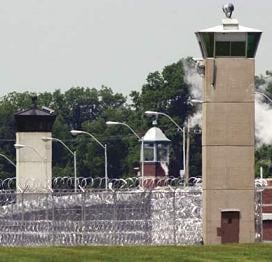Topic Tuesday #33 2013/03/05 - "Do not pass GO. Do not Collect $200 - Go directly to Privatization"
The seed for today's topic. Florida Atlantic University in it's efforts to pay for a 30,000 seat football stadium found an unlikely backer. The Stadium will be christened the GEO Group Stadium, thanks to a $6 million dollar (over 12 years) donation to the public university. GEO Group is the nations second largest operator of for-profit privatized prisons.
http://www.huffingtonpost.com/2013/02/19/florida-atlantic-football-stadium_n_2720223.html?1361323728
This leads to a great many questions about what privatization really means. We have corporate prisons, corporate schools, corporate space programs, and some would say politicians should dress up like race car drives so we can see who is sponsoring them as well.
Today I want to look at prisons, specifically.
The United States is the world's leader in incarceration with 2.2 million people currently in the nation's prisons or jails - a 500% increase over the past thirty years. These trends have resulted in prison overcrowding and state governments being overwhelmed by the burden of funding a rapidly expanding penal system. The original intent, some 200 years ago, when the penitentiary system (etymologically derived from "penance") was formed by the Quakers and other reformist groups, was to take sinners, lock them in a cell, make them read the Bible, and they would repent for their sins. This model of incarceration (which didn't have great success at rehabilitation and repentance) has not changed that much since the inception. What has changed is the perception, method, and value of incarceration.
Not all the privatizations for to Corporations, some just migrate jurisdiction from state to county. In Louisiana it works this way: County or parish sheriffs get about $25 a day for inmates that would have otherwise ended up in state prisons. Some of that money goes to house and feed the prisoners. What’s left over goes to the underfunded sheriffs’ departments to use for much needed equipment and for manpower. The sheriffs get their needed bullet proof vests, and somehow prisoners end up with longer sentences and jail remain at capacity to get their $25 a head. This narrows any funds left for an actual rehabilitation. Again in this example, the funds for those activities come from charity functions like rodeos and Church outreach.
This method is simple, the more you have the easier it is to take care of, and you end up with a more economical situation with more money left over. This is not as insidious as what the real private for profit prisons do.
Slave Labor.
In the eyes of the corporation, inmate labor is a brilliant strategy in the eternal quest to maximize profit. By dipping into the prison labor pool, companies have their pick of workers who are not only cheap but easily controlled. Companies are free to avoid providing benefits like health insurance or sick days, while simultaneously paying little to no wages. They don’t need to worry about unions or demands for vacation time or raises. Inmates
work full-time and are never late or absent because of family problems.
Under the
Work Opportunity Tax Credit (WOTC), private-sector employers receive a tax credit of $2,400 for every work release inmate they employ as a reward for hiring “risky target groups” and they can "earn back up to 40 percent of the wages they pay annually to target group workers."
Companies can lease factory time in prisons. Lease prison work forces.
Noah Zatz of UCLA law school estimates that:
“Well over 600,000, and probably close to a million, inmates are working full-time in jails and prisons throughout the United States. Perhaps some of them built your desk chair: office furniture, especially in state universities and the federal government, is a major prison labor product. Inmates also take hotel reservations at corporate call centers, make body armor for the U.S. military, and manufacture prison chic fashion accessories, in addition to the iconic task of stamping license plates.”
Making stiffer penalties that lead to longer stays in the "big house" has proven a great way to get votes. Making other people responsible and shifting the financial burden is also a great slight of hand for policy makers.
And thanks to all this, there is a dark economy of slavery in this country while record unemployment continues to plague the news, the government has it's armor and ammunition built by felons, and Corporate America hires prisoners for a few dollars a day to slice "Made in Honduras" tags off garments and replace them with "Made in America".
Is it ethical to incarcerate people for the sole purpose of making money? How can anyone think it is?
http://www.pbs.org/wnet/religionandethics/episodes/january-11-2013/prisons-for-profit/14485/
http://www.sentencingproject.org/detail/news.cfm?news_id=1445
http://www.guardian.co.uk/commentisfree/2012/dec/19/corporate-welfare-incarceration-industry
http://www.alternet.org/story/151732/21st-century_slaves%3A_how_corporations_exploit_prison_labor?page=0%2C0&paging=off
http://www.globalresearch.ca/the-pentagon-and-slave-labor-in-u-s-prisons/25376



